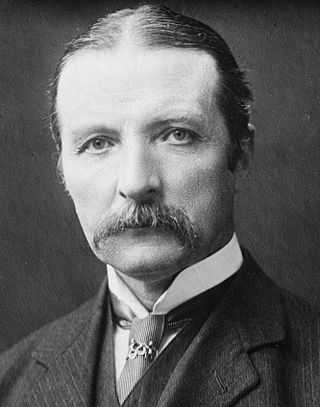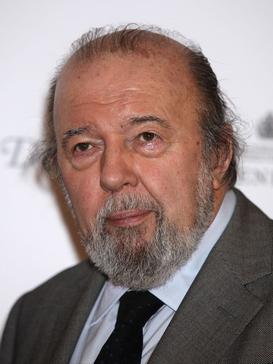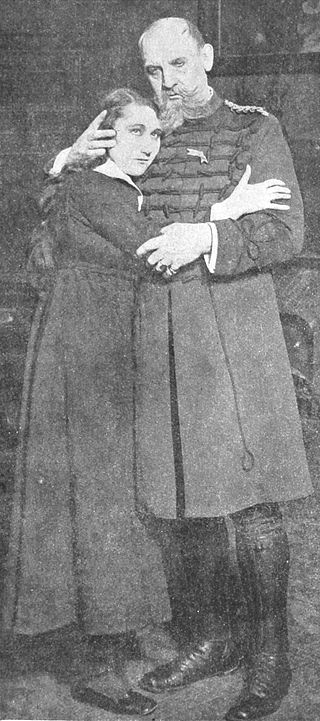
A Doll's House is a three-act play written by Norwegian playwright Henrik Ibsen. It premiered at the Royal Danish Theatre in Copenhagen, Denmark, on 21 December 1879, having been published earlier that month. The play is set in a Norwegian town c. 1879.

Johan August Strindberg was a Swedish playwright, novelist, poet, essayist, and painter. A prolific writer who often drew directly on his personal experience, Strindberg wrote more than 60 plays and more than 30 works of fiction, autobiography, history, cultural analysis, and politics during his career, which spanned four decades. A bold experimenter and iconoclast throughout his life, he explored a wide range of dramatic methods and purposes, from naturalistic tragedy, monodrama, and historical plays to his anticipations of expressionist and surrealist dramatic techniques. From his earliest work, Strindberg developed innovative forms of dramatic action, language, and visual composition. He is considered the "father" of modern Swedish literature and his The Red Room (1879) has frequently been described as the first modern Swedish novel. In Sweden, Strindberg is known as an essayist, painter, poet, and especially novelist and playwright, but in other countries he is known mostly as a playwright.

William Archer was a Scottish author, theatre critic, and English spelling reformer based, for most of his career, in London. He was an early advocate of the plays of Henrik Ibsen, and a friend and advocate of George Bernard Shaw.

Sir Peter Reginald Frederick Hall CBE was an English theatre, opera and film director. His obituary in The Times declared him "the most important figure in British theatre for half a century" and on his death, a Royal National Theatre statement declared that Hall's "influence on the artistic life of Britain in the 20th century was unparalleled". In 2018, the Laurence Olivier Awards, recognising achievements in London theatre, changed the award for Best Director to the Sir Peter Hall Award for Best Director.

Peer Gynt is a five-act play in verse written in 1867 by the Norwegian dramatist Henrik Ibsen. It is one of Ibsen's best known and most widely performed plays.

Epic theatre is a theatrical movement that arose in the early to mid-20th century from the theories and practice of a number of theatre practitioners who responded to the political climate of the time through the creation of new political dramas. Epic theatre is not meant to refer to the scale or the scope of the work, but rather to the form that it takes. Epic theatre emphasizes the audience's perspective and reaction to the piece through a variety of techniques that deliberately cause them to individually engage in a different way. The purpose of epic theatre is not to encourage an audience to suspend their disbelief, but rather to force them to see their world as it is.

The Moscow Art Theatre (or MAT; Russian: Московский Художественный академический театр, Moskovskiy Hudojestvenny Akademicheskiy Teatr was a theatre company in Moscow. It was founded in 1898 by the seminal Russian theatre practitioner Konstantin Stanislavski, together with the playwright and director Vladimir Nemirovich-Danchenko. It was conceived as a venue for naturalistic theatre, in contrast to the melodramas that were Russia's dominant form of theatre at the time. The theatre, the first to regularly put on shows implementing Stanislavski's system, proved hugely influential in the acting world and in the development of modern American theatre and drama.

Sigrid "Siri" Sofia Matilda Elisabet von Essen was a Swedish-speaking Finnish noblewoman and actress. Her acting career spanned about 15 years, during which time she appeared in a number of plays that the Swedish dramatist and writer August Strindberg wrote specifically for her.

Getting Married is a collection of short stories by the Swedish writer August Strindberg. The first volume was first published on 27 September 1884 and contained twelve stories depicting "twenty marriages of every variety," some of which present women in an egalitarian light. The volume also contained a long preface, in which, in addition to his support for women's rights, Strindberg offered criticisms of the campaign, as well as of Henrik Ibsen's 1879 play A Doll's House. Strindberg finished a second volume of stories, dealing in part with "all the less common forms of 'marriage'" such as "pederasty and lesbianism," in the summer of 1885. After a delay caused by the unwillingness of printers and distributors to handle such a controversial volume, it was published in October 1886. While the first two stories are as sympathetic to women as some of those in the first volume, many border on misogyny. Its preface blamed women for religious persecution, war, and all of history's other misfortunes. Both volumes were written at a time when Strindberg was still married to Siri von Essen, though the publication of the second volume had a disastrous effect on their marriage.

The Swedish Theatre in Stockholm was, at the beginning of the 20th century, Sweden's largest dramatic theatre. It was located on Blasieholmen in central Stockholm. During its years in use, from 1875 to 1925, it was often considered as Sweden's foremost national theatre.
Non-Aristotelian drama, or the 'epic form' of the drama, is a kind of play whose dramaturgical structure departs from the features of classical tragedy in favour of the features of the epic, as defined in each case by the ancient Greek philosopher Aristotle in his Poetics
The Mission: Memory of a Revolution, also known as The Task, is a postmodern drama by the German playwright Heiner Müller. The play was written and first published in 1979. Müller and his wife Ginka Cholakova co-directed its first theatrical production in 1980, at the intimate 'Theatre im 3.Stock' studio space of the Volksbühne in Berlin. Müller also directed a full-house production in 1982 at the Bochum Theatre in West Germany.
Baron Casper Gustaf Kenneth Wrede af Elimä, known as Caspar Wrede, was a Finnish theatre and film director. He was long active in the English theatre, co-founding the Royal Exchange theatre company in Manchester.

The Father is a naturalistic tragedy by Swedish playwright August Strindberg, written in 1887. It is about the struggle between parents over the future of their child; resulting in the mother, using her cunning manipulative skills, subduing and finally destroying the father.

Naturalism is a movement in European drama and theatre that developed in the late 19th and early 20th centuries. It refers to theatre that attempts to create an illusion of reality through a range of dramatic and theatrical strategies. Interest in naturalism especially flourished with the French playwrights of the time, but the most successful example is Strindberg's play Miss Julie, which was written with the intention to abide by both his own particular version of naturalism, and also the version described by the French novelist and literary theoretician, Emile Zola.
Michael Leverson Meyer was an English translator, biographer, journalist and dramatist who specialised in Scandinavian literature.

Creditors is a naturalistic tragicomedy by the Swedish playwright August Strindberg. It was written in Swedish during August and September 1888 in Denmark. It was first published in Danish in February 1889 and appeared in Swedish in 1890. It premiered at the Dagmar Theatre in Copenhagen in March 1889. It is seen as one of Strindberg's most powerful plays. Strindberg himself, writing in 1892, described it as his "most mature work."
Michael Elliott, OBE was an English theatre and television director. He was a founding director of the Royal Exchange Theatre in Manchester.

The Théâtre de Paris is a theatre located at 15, rue Blanche in the 9th arrondissement of Paris. It includes a second smaller venue, the Petit Théâtre de Paris.
John Kenneth Tyrrell McLeish, known as Kenneth McLeish (1940–1997) was a British writer, playwright and translator. McLeish, "the most widely respected and prolific translator of drama in Britain", translated all the surviving classical Greek plays, most plays by Henrik Ibsen and Georges Feydeau, and individual plays by Plautus, Molière, Alfred Jarry, August Strindberg, Ödön von Horváth and Eugène Marin Labiche.













